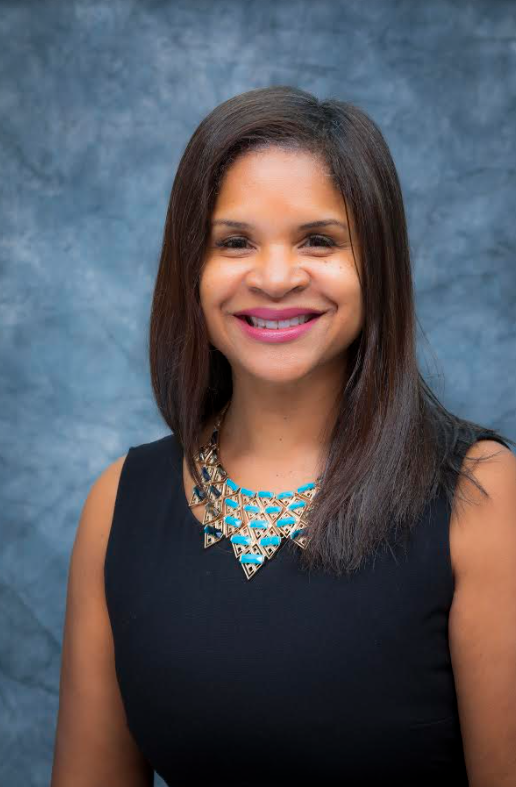5 Expert Financial Wellness Tips for Educators

Creating strong financial wellness habits can be challenging for anyone, and with several unique aspects of a career in education, new – and even veteran – teachers can benefit from a financial wellness check-up.
The first financial challenge educators are faced with is summer vacation. Do they have to get a summer job? How much do they have to save to enjoy the break? What about preparing for retirement and everything else life requires?
To answer these questions, Alternate Route spoke to Dr. Lisa Knox-Brown, Assistant Professor of Professional Practice for the Graduate School of Education's Department of Learning and Teaching at Rutgers. Dr. Knox-Brown outlined five key rules she follows for financial wellness that she recommends other educators follow.
We also spoke with “Ed,” the anonymous author behind EducatorFi blog, which aims to help educators reach financial independence. Ed launched the blog after they developed a 10-year financial plan with their partner. Ed is now on track to reach their financial goal within six years and wants to share tips with other educators.
“One reason I’m so passionate about this topic is because I’ve worked with so many educators who love their job but get overwhelmed financially,” Ed said. “That stress then keeps them from enjoying their work or giving it the focus it deserves. Our work is important, and I never want a passionate educator to leave because of finances. We need good people lifting up our students. To do that, we need to make sure educators can be financially well, too.”
The Five Rules

Dr. Knox-Brown says there are five core rules she abides by for financial success and encourages other educators to take the same approach.
1. Understand the mindset
Before diving into a plan of action, you need to get into the mindset.
“When a teacher comes in right out of college, they haven't had access or understanding of money,” Dr. Knox-Brown said.
Getting in the mindset doesn’t have to be difficult, it’s just taking those first steps toward financial literacy. Start having financial conversations, follow industry publications and get a loose idea of your goals. The biggest step is getting started.
2. Formulate a financial plan
For educators specifically, Dr. Knox-Brown recommends viewing a financial plan like a backwards map. Think five years ahead and where you want your life to be financially, then map backwards.
Dr. Knox-Brown uses just-out-of-school educators as an example for a five-year financial plan.
“A lot of new teachers are living at home, so their plan is to get out of there. Look at student loans, phone, etc. Look at that and then plan for the money you need to save to get out.”
Ed agrees that a strong financial plan is the basis for financial wellness.
“A financially well educator has a plan for their finances,” they said. “They feel in control of their money rather than being consumed by money stress. In the early phases, this might simply be making sure you are bringing in more money than you’re spending. Then, you can start really making progress and using any extra money to secure your future.”
3. Save, save, save
Saving is key, and how you spend your money determines how much you are able to save. Dr. Knox-Brown’s golden rule is to avoid spending before you have dealt with any small, personal debts and bills. Get those out of the way first and evaluate your finances after. Likewise, Ed recommends tracking everywhere your money goes to get an understanding of where you can save.
“The most powerful first action anyone can take is to track your spending for a period of time. I’d recommend at least a month, but three months is even better,” Ed said. “Just learning where you’re spending money can transform your understanding and give you a great sense of where to take action.”
With any hefty goal, there will be sacrifice. Think about lifestyle changes you can make that will benefit your finances. Dr. Knox-Brown says a big tweak many people can make is to switch from eating out to making meals at home.
“It’s important to identify a want versus a need,” she said. “Sometimes we blur wants into needs when they are really not.”
A healthy savings mindset also applies to summer vacation. Dr. Knox-Brown recommends saving roughly 10 percent of every paycheck and putting it toward summer vacation. Many districts offer payment-distribution plans for summer. For those that do not, Dr. Knox-Brown recommends opening a separate bank account for summer vacation savings. This way, the money will be in a safe place.
4. Pay yourself
According to Dr. Knox-Brown, treating oneself should be part of every person’s financial plan.
“I have this philosophy you pay yourself and build on that,” Dr. Knox-Brown said. “You get raises or a bonus or a contract is renegotiated. Instead of taking that money, invest in yourself and seek financial advice. The most valuable investment you can make is in yourself.”
She recommends allocating funds toward a reward of some degree, whether that’s a monthly pedicure, stock purchases or treating yourself to lunch. Think of small joys that enhance your life and which are worth splurging on a little. Don’t splurge too much, though!
5. Seek financial advice
Dr. Knox-Brown advises seeking out people in your life who have a good financial mindset prior to spending money on a professional. Look for someone in your life who has a solid and steady financial track record and who understands the value of a dollar.
“They're not trendsetters, they're not flashy or living above their means. These are the people you want to sit down with and get their financial blueprint.”
If professional services are necessary, make sure to carefully vet the resource.
“Be very cautious with anything suggested to you by the financial company reps that sometimes show up in staff rooms,” Ed said. “Even if they’re former educators, they may have financial incentives that aren’t in your best interest. Not all are predatory, but it’s good to educate yourself or work with an advisor who will act with fiduciary duty - meaning they’re required to act in your best interest.”
Seeking financial advice also comes in handy when reviewing a new contract and Ed says a careful contract review can benefit educators.
“It’s not exciting, but these agreements often contain underutilized information and benefits,” Ed said. “Knowing what your contract says can help you plan for future income, find great benefits like education credits, and unlock other financial opportunities. I’ve seen educators double their salary years earlier than expected because of things they found in their district contract.”
The first step toward financial wellness can be intimidating, however, it’s easier to begin when the process is broken down into simple steps. If you have not started financial planning yet, these five steps are a great starting blueprint.
If you’re considering following your dream of teaching, Rutgers Alternate Route can offer you the support and training you need to succeed. Be sure to follow Rutgers Alternate Route on Twitter for more information and stories from the field of education.

 Heather Ngoma has over 25 years of experience collaborating with educators across New Jersey to drive education innovation. She currently serves as the Director of the Rutgers-GSE Alternate Route Program in the Department of Learning and Teaching, a program which helps career changers, recent college graduates, and other aspiring education professionals become licensed teachers in New Jersey. Follow her on Twitter @heatherngoma.
Heather Ngoma has over 25 years of experience collaborating with educators across New Jersey to drive education innovation. She currently serves as the Director of the Rutgers-GSE Alternate Route Program in the Department of Learning and Teaching, a program which helps career changers, recent college graduates, and other aspiring education professionals become licensed teachers in New Jersey. Follow her on Twitter @heatherngoma.





